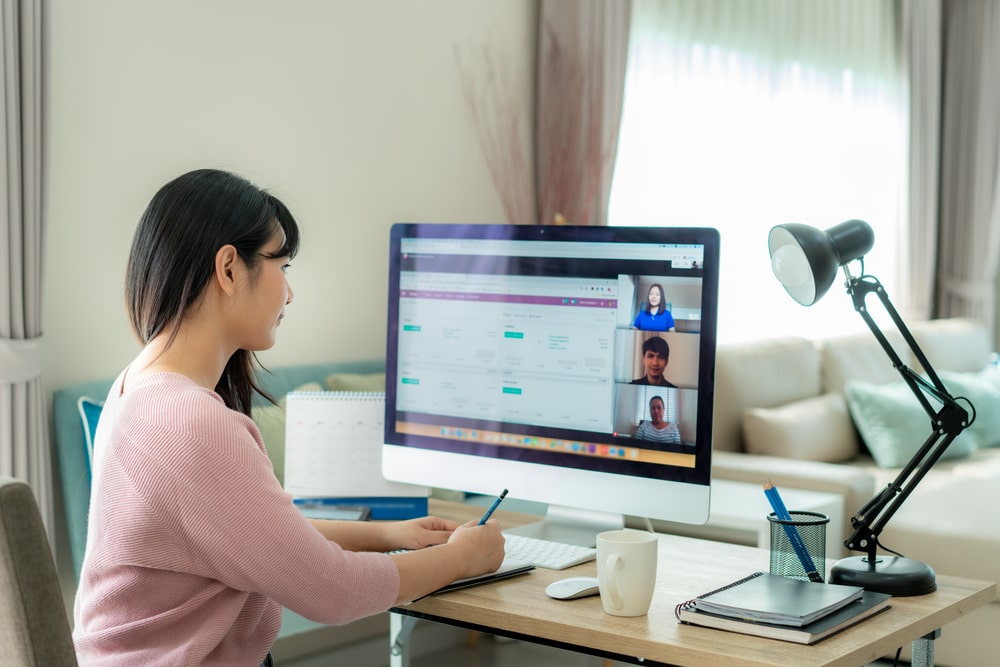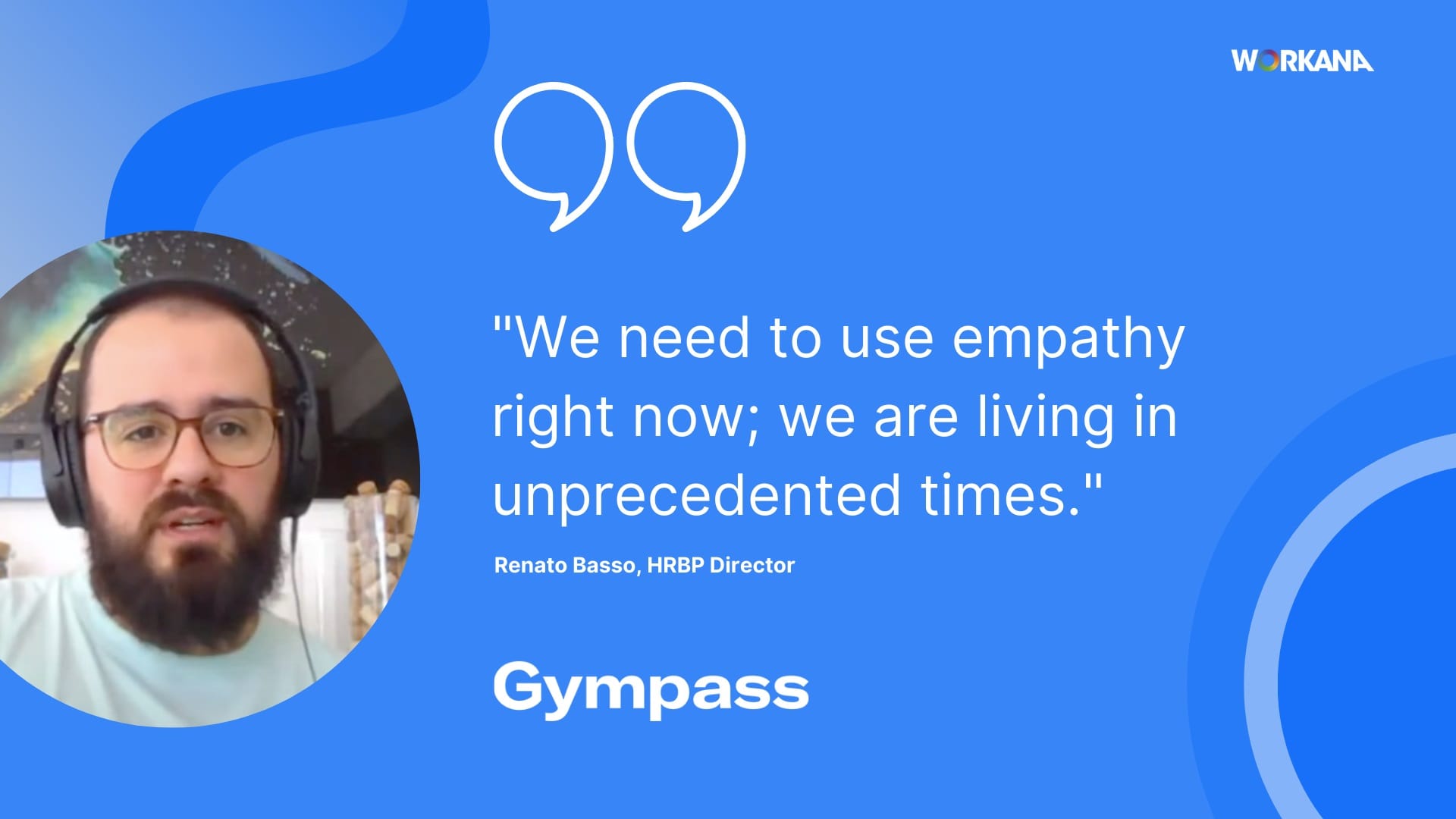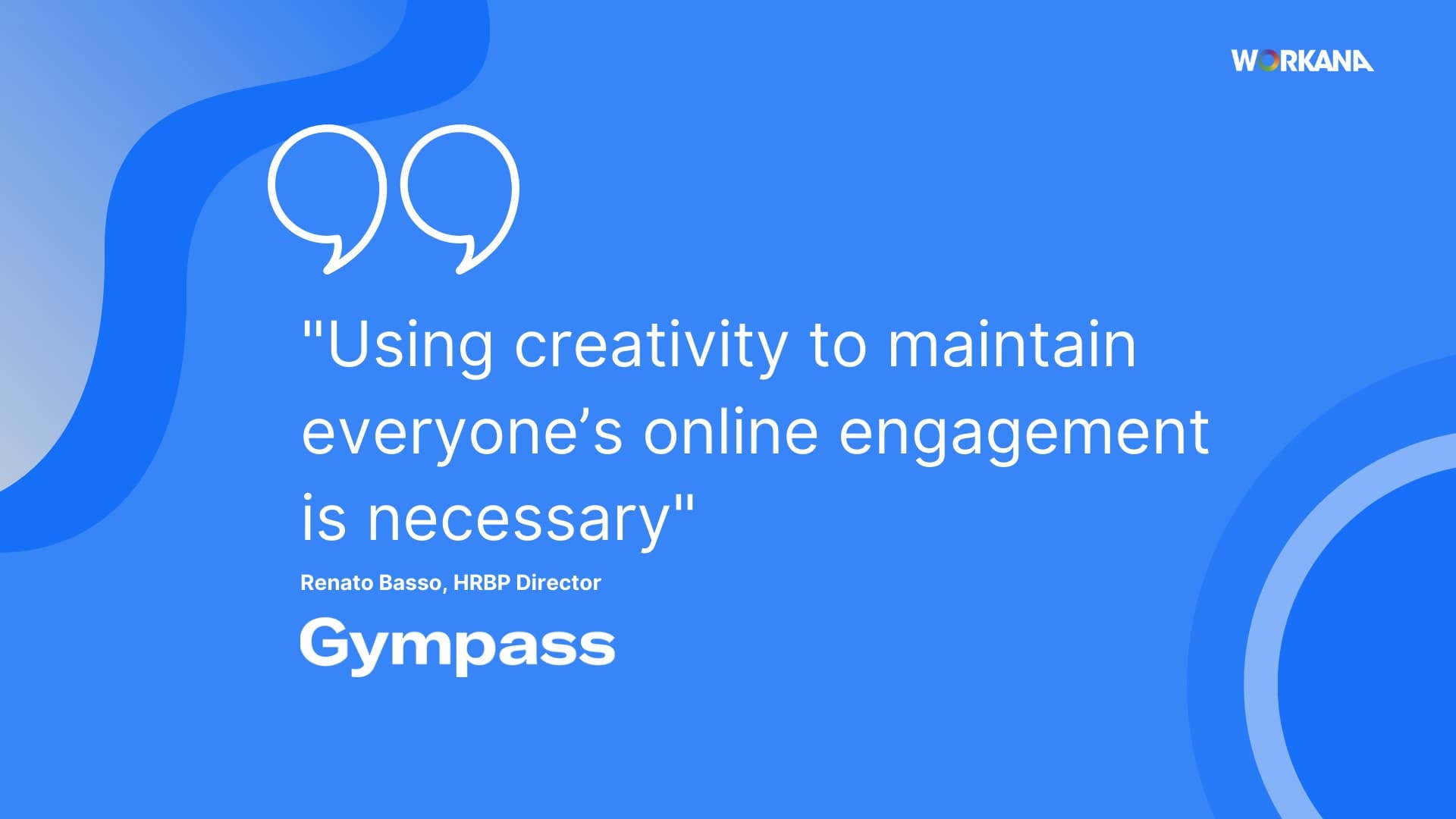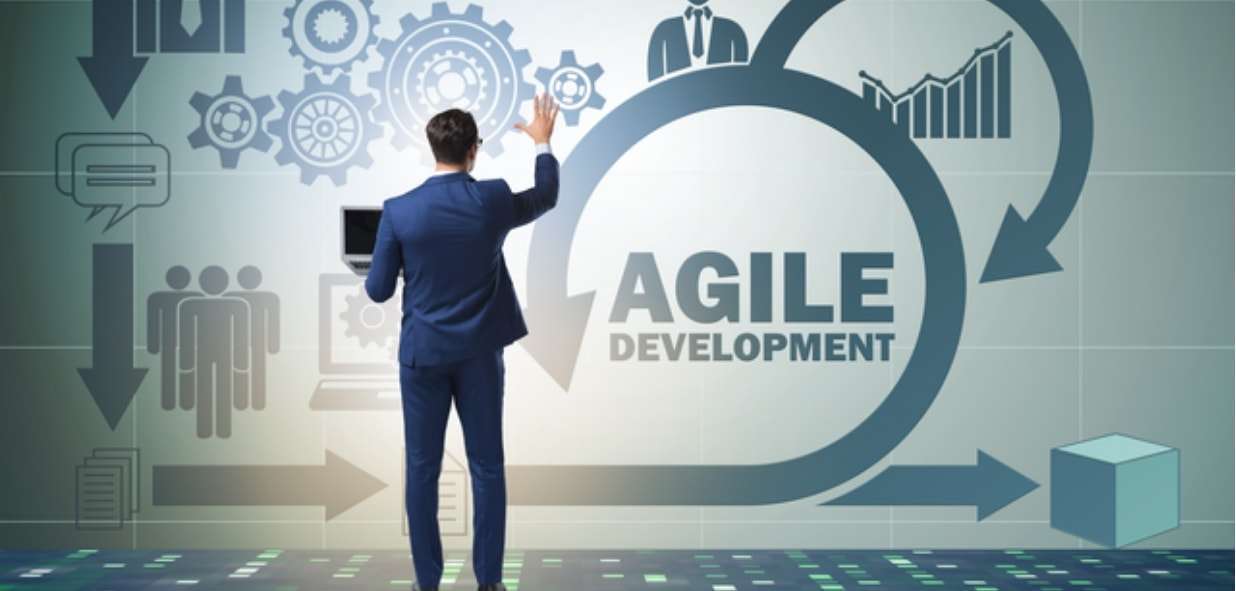With over 1000 employees from 17 different countries in 14 countries around the world, the multinational corporation Gympass was one of the first companies in the world to close their (physical) doors. From the second week of March, all employees have been working remotely.
Before starting the COVID-19 quarantine, there were doubts about whether or not people would actually get their work done at home although the company already had a work from home policy in place that allowed employees to work from home once a week.
Because of doubts surrounding productivity, the benefit wasn’t widely used, and people still preferred to work in the office…until this year.
Logistics and Communication in Record Time

Without time to plan for a big change, the company’s greatest challenge was to guarantee that all employees would have their computers and infrastructure to work from home (with a stable internet connection being the number one priority) in record time.
On the other hand, because of their in-person company culture, another concern that many Gympass leaders had was making sure that employees would actually work at home and not leave their homes to go to work. At the time, there wasn’t much clarity about the gravity of COVID-19 and how its ramifications would affect the entire world.
Now, more than 60 days after implementing this remote work policy, Gympass’ main concern is maintaining employees’ quality of life. While questions surrounding productivity were raised because the team has been working 100% remotely in the gym industry, their business model is changing.
What has Gympass taught us?
In times like these, developing effective crisis management and guaranteeing all employees’ health and wellbeing became the top priority. Gympass decided to put its people first.

A few quickly-implemented changes that had a positive impact on all the company’s employees are related to the way that the company prepared for these circumstances by successfully transforming from training initiatives being 100% in person to being 100% online.
This strategic measure of bringing training back online was crucial for putting employees’ hard skills into play and leveraging team members’ soft skills to make sure that the company’s objectives would be completed…relying more on creativity, commitment, and inventiveness.
There are five programs for each Gympass unit, and each of them has three modules with specific training. The sessions were divided into Pre Work (completed online that were approximately eight hours duration time) and Post Work (with in person sessions where knowledge was exchanged and trainees applied what they learned.)
Before the crisis. 90% of these training sessions were done in person. In just one month of quarantine, the company successfully migrated all of the existing training online, in addition to adding new training that became essential to navigating this time. The company found a way to provide a bit of normalcy in a time of complete uncertainty.

They made modifications and adaptations, using more online tools like Zoom so that everyone could participate. Through this platform and thanks to a protocol implemented for its use, they created subgroups, discussion rooms, and Q&A sessions to guarantee that participants would take in all the content.
For Renato Basso,Gympass HRPB Director, maintaining processes that were established before the pandemic was important to reinforce the idea of continuity and everything would be business as usual, putting the minds of employees, providers, and the company at ease.
In addition to virtual training, the team sought to create quick responses for the business and its entire ecosystem. Even today, the company strives to innovate and find new solutions on a weekly basis in order to deal with crisis management and remain (virtually) close to their employees.

Another big change that was incorporated in order to combat this situation was a monthly meeting with the company CEO where they established, readjusted, and evaluated objectives and goals with all of the global leaders. This meeting also became a space to discuss other topics and dive deeper into discussions.
In the end, each leader sought to meet with their team to strengthen the company’s communication in the local language in order to guarantee a practical, objective, and transparent path to positively impact productivity. This transformed into an opportunity to understand how everyone was doing at that time, understand everyone’s concerns, and address other topics.
All of these changes have had positive impacts. Every department at Gympass had unanimously positive feedback: they felt a lot closer.
The Future of Gympass

Gympass’ global mission is to end sedentary lifestyles and provide an active future. They’re expanding this mission to include a solution where mental health is also part of everyone’s health routine.
Knowing that we’re experiencing unforeseen circumstances has led to a groundbreaking revelation: we’re all adaptable, and we need to understand that there are some things that are out of our control. What we do with that is a learning experience.
—
You might also be interested in:
- Syngenta Tells us How They Leveraged Remote Work in Order to Innovate and Prepare for the Future During the Pandemic
- Now More Than Ever, Understanding and Leveraging the Benefits of 4.0 Work is Essential to Scaling and Strengthening Your Business
- The future of work isn’t scary, but it is misunderstood
- Why it is important to support your remote work teams 100% to grant their success
- [Downloadable material] Remote Work Guide
- How to take the first step in using BIG DATA with help from a freelancer





